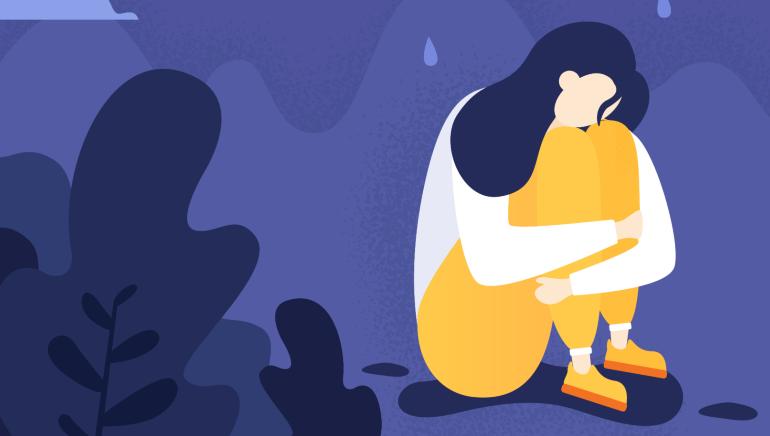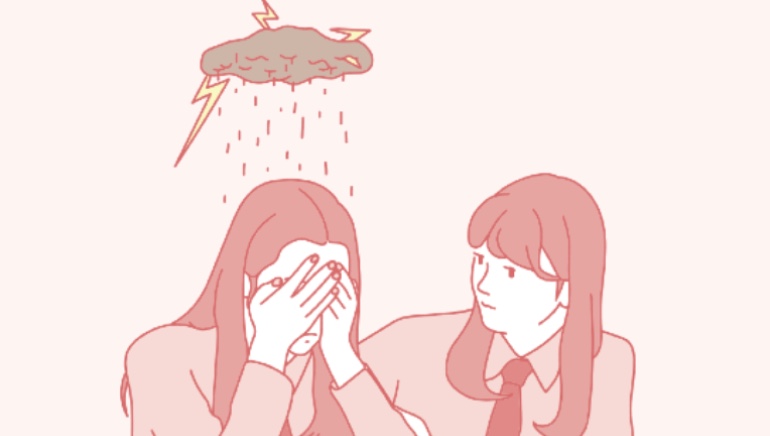
Around 2.30 PM yesterday afternoon, I received a solemn text that sent me—much like everyone else in the country—into a tizzy. Sushant Singh Rajput had died by suicide. By 4 PM, my social media feeds were flooded with celebrity statements and paparazzi pictures of his body being taken for post-mortem. Then, at 5, my phone unceremoniously announced the presence of WhatsApp forwards that turned to be fairly graphic images of the actor’s lifeless body.
As the police delved deep into Rajput’s troubled mental health, uncovering medical records for treatment of clinical depression (according to a report by India Today)—we as a people forwarded WhatsApp messages chronicling his alleged history of drug abuse. While his family tries to deal with the grief, we’re actively scrolling through Instagram pictures of the actor, old and new.
And through it all, the importance of a healthy mind is reduced to sharing a few helpline numbers on social media and engaging in debates with family and friends on what must be plaguing the actor.
Rajput’s demise has laid bare India’s indifferent attitude towards mental health
When I had visited a therapist for the first time in 2014, a close friend advised me to keep this information to myself, because “log kya kahenge?”. Six years later, nothing much has changed.
Even if we keep aside WHO data which claims that close to 70% of people suffering from mental health ailments in India don’t get treatment—the fact remains that afflictions like anxiety and depression are still considered to be something you can get over just like that.
But worse still is how Indians perceive those suffering from mental illness.
According to a 2018 survey by Deepika Padukone’s mental health non-profit, The Live Love Laugh Foundation—47% of the 3,556 respondents were not only judgemental of people with mental health issues but also more likely to stay away from those who were depressed.
It isn’t surprising then that 26% of the survey participants were afraid to fraternize with those with mental illnesses.
Whether or not this stigma played a part in Rajput’s struggle with his mental health is not for us to debate. But given the constant chatter on news channels and social media, trying to analyse the reason behind his depression, one thing is abundantly clear: most of us are clueless about what the disease entails.
To make a precarious situation worse, comments on Rajput’s last Instagram post range from blaming his bachelorhood as the reason for his suicide to lack of true friends in the industry as the real problem. People on Twitter are sharing a picture of The Starry Night by Vincent Van Gogh from the actor’s account, questioning whether this was a sign for help.
Select Topics of your interest and let us customize your feed.
PERSONALISE NOW
Across platforms though, one thing remains constant: his fans asking over and over again why he took the drastic step instead of confiding in someone about what was bothering him.
Understanding depression and how it affects people is essential
Yes, confiding in near and dear ones about depressive thoughts can indeed help someone suffering from depression. That said, it is merely the first step in a long battle. Clinical or major depression alters the brain, impacts the endocrine system, and weakens the immune system.
While people with milder forms of depression can still find some relief in self-help strategies like exercise and meditation—severe cases need medical intervention, be it in the form of psychotherapy or anti-depressants.

But here’s the thing about depression: At times the person suffering from it doesn’t necessarily realise that it is treatable—that there is indeed light at the end of the tunnel. And a chemical imbalance in the brain, which is a trademark of depression, is to blame for it.
No one chooses to be depressed or stay depressed. Their brain just doesn’t allow them to snap out of it.
So to say that Rajput should have shared his emotions, cried it out, or confided in someone—things that he might have done already privately—is not right. Because it fuels the notion that he didn’t do enough to get better when the truth is his brain might not have allowed him to.
What went on in his mind, we cannot possibly reckon. But we can take this heart-breaking incident to start a much-needed mental health revolution.
Mental health awareness needs to go beyond sharing posts on social media
Over the course of the past few decades, the conversation around mental health has truly become louder in India. And it is no longer restricted to just a few NGOs. It’s spread across Instagram, Twitter, and Facebook now—where woke netizens share their mental health woes to start an open dialogue.
And yet, the discourse is far from where we need it to be. Taking a “mental health day” at work is often required, but so is the practice of checking in with our near and dear ones. Understanding the symptoms of depression and encouraging those who have exhibit them to seek treatment is the first step. Knowing the red flags indicating the presence of suicidal thoughts and the willingness to help someone showcasing them is what can truly save a life.

But this needs to be prefaced by changing how we as a society approach depression. Saying “I’m depressed!” when you’re just sad perpetuates the stigma that keeps people from opening up about depression. It sends the message that tomorrow you might wake up feeling A-Okay and mood-disorder-free—which is contrary to what this disease allows.
Most importantly, educating people—who still think yielding to your emotions is a weakness and depression is a choice—is the need of the hour. While media reports suggest that Rajput was indeed seeking psychiatric help, not everyone has that liberty. When many people don’t even have the freedom to talk about what they’re feeling with their family, counsellors are a far cry.
With India boasting of the highest suicide rate in South-East Asia, it’s time to take our mental health advocacy off social media and make it a practice in real life—by talking about it to family, friends, colleagues, and whoever else is willing to listen. This, is the least we can do to honour Sushant Singh Rajput’s memory.